On a Slow Boat
On A Slow Boat to China
My Journey with Li Chuan-hua
Li Chuan-hua (29) is a Chinese guest worker from Shandong Province in Mie Prefecture, Western Japan. The father of 5-year old boy, he came to Japan in April, 2008 as a contract worker for a local construction company. He arrived in Japan with just 5-month Japanese crash course and left his family behind. He had no plan to visit China and his family during his 3-year contract with the company to save money.
According to a recent labor survey, there are 280,000 Chinese workers (out of 650,000 foreign workers) in Japan. Chinese workers hold 44% of all foreign workers*(1). Yet, under the facade of the homogeneous and somewhat xenophobic society, it is very easy for many Japanese to disregard their existence as the invisible "the other". In fact, Japan's agricultural, manufacturing, construction, or service sectors which face rapidly aging workers and labor shortage depend on their workforce tremendously, and there will be more need for their labor force.
I had been documenting his life in Japan and went back to China with him in this May 2011. *(2) Through this project, I would like to show that he is not a statistic and is just like "one of us" who searches for a taste of the good life although he can be seen as a disposable force in Japan and is only paid half of the other Japanese workers' earnings. I also would like to explore his anxieties of dislocation and of being swept up outside his control in this globalized economy.
2009~2011
*(1) To be specific, according to the Governmental Agency, JITCO (Japan International Training Cooperation Organization)'s term, foreign guest workers are supervised under "Industrial Training and Internship Programs" and are called "Trainees." Chinese workers hold 82.1% of all trainees. According to the Immigration Bureau of Japan, In 2008 alone, about 69,000 new trainees (out of total 102,000) were from China and had joined the agricultural, manufacturing, or construction workforce in Japan.
*(2) Unfortunately, his father had been ill and passed away just the day before he arrived in China. Li’s family members kept his father’s illness secret from him till he came back home.

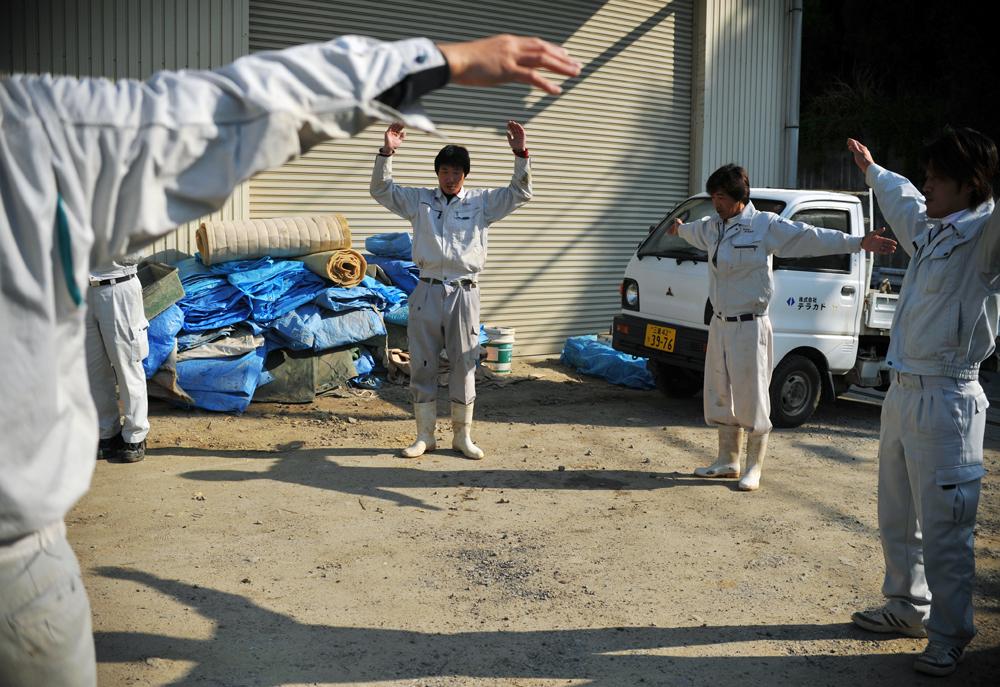
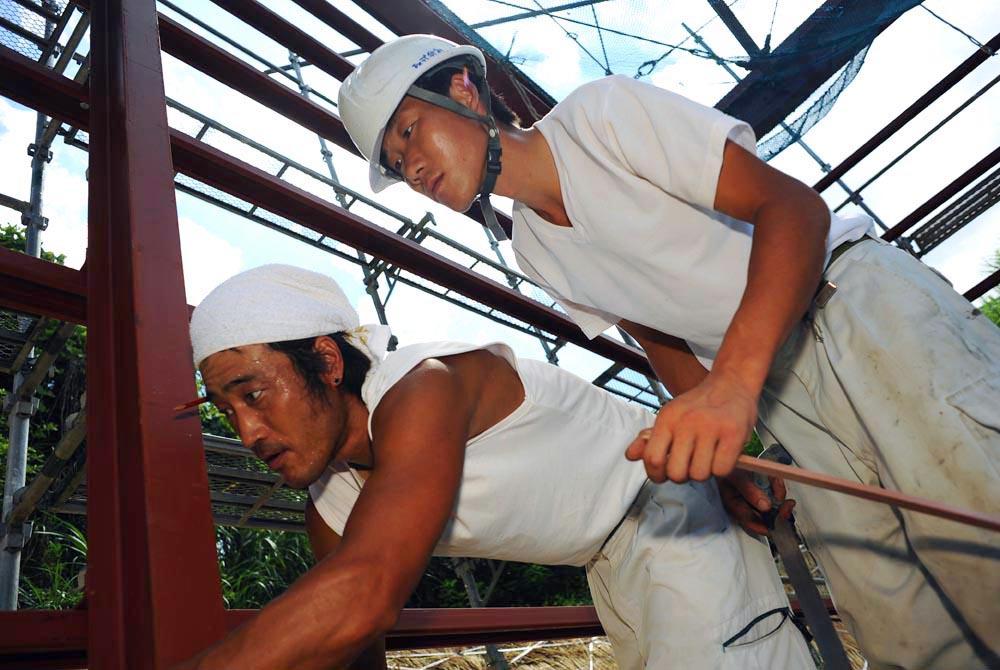
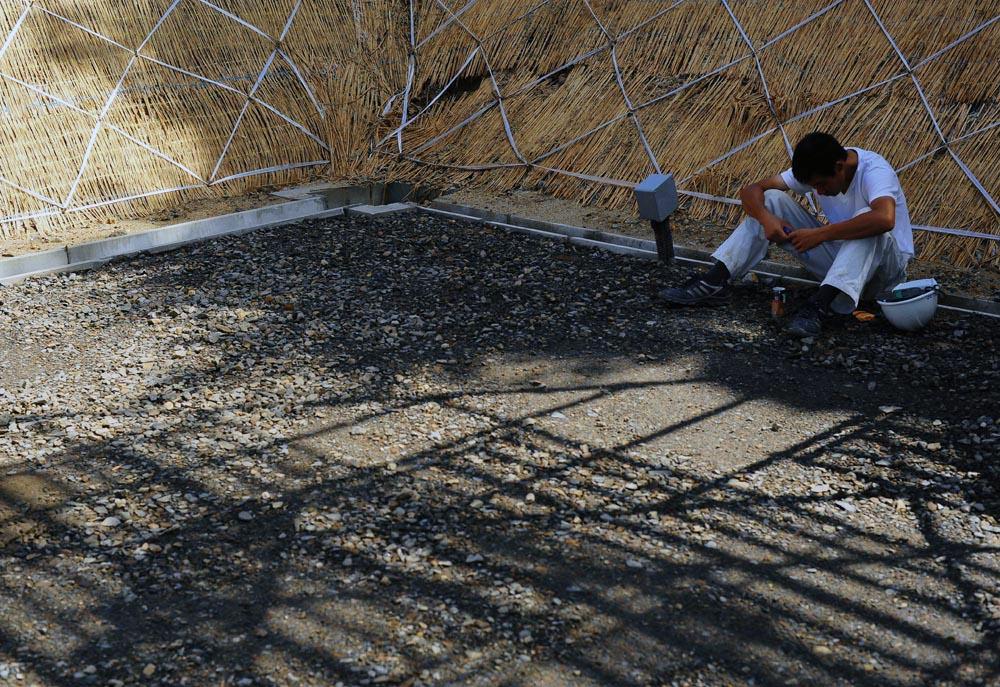

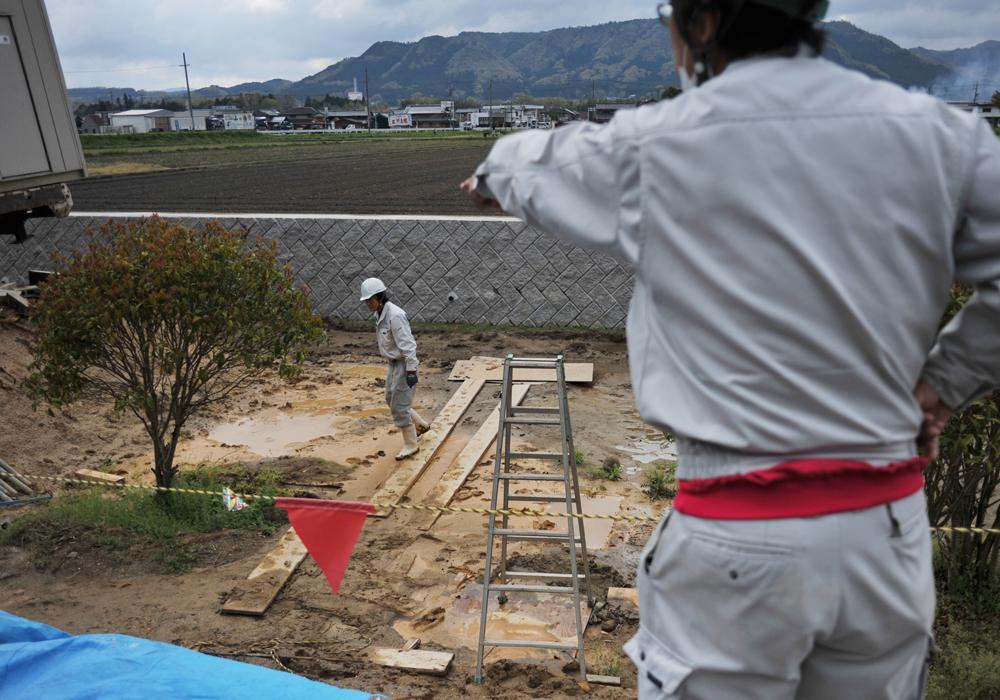
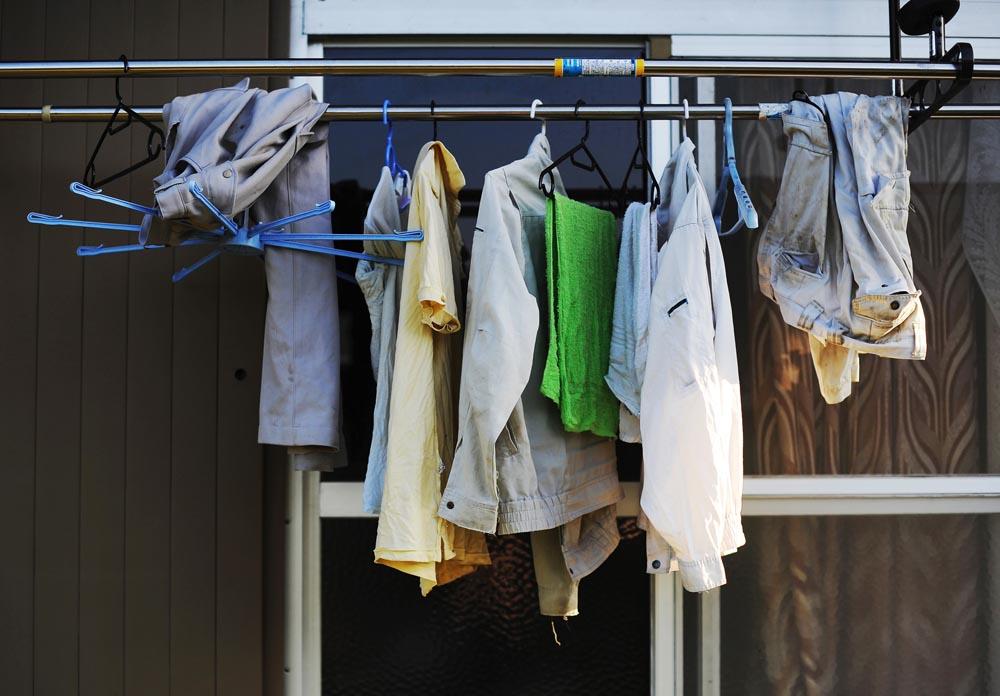
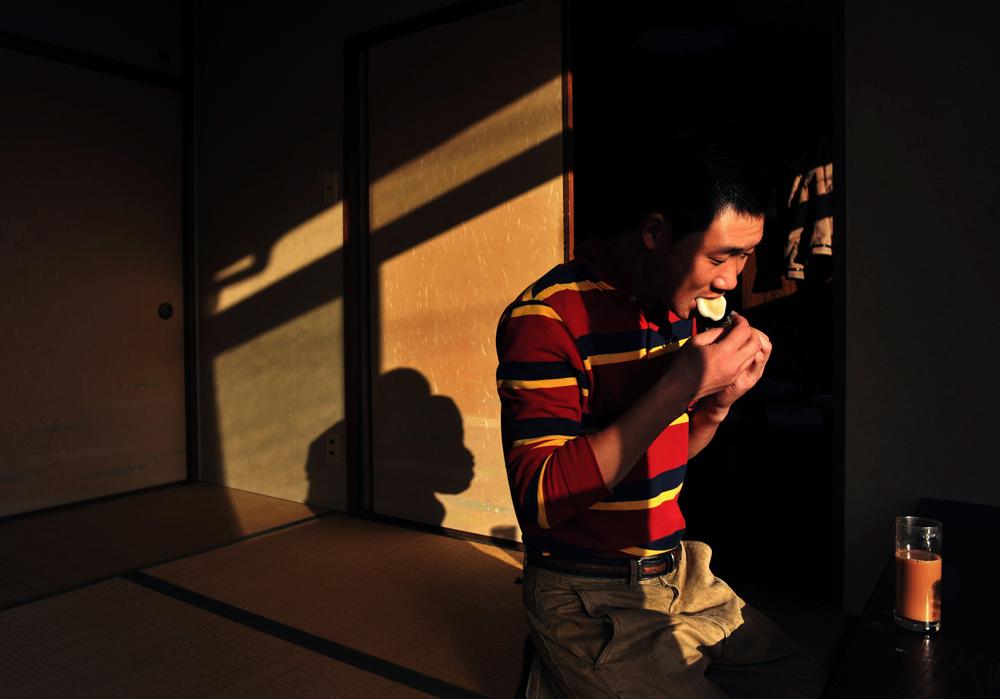
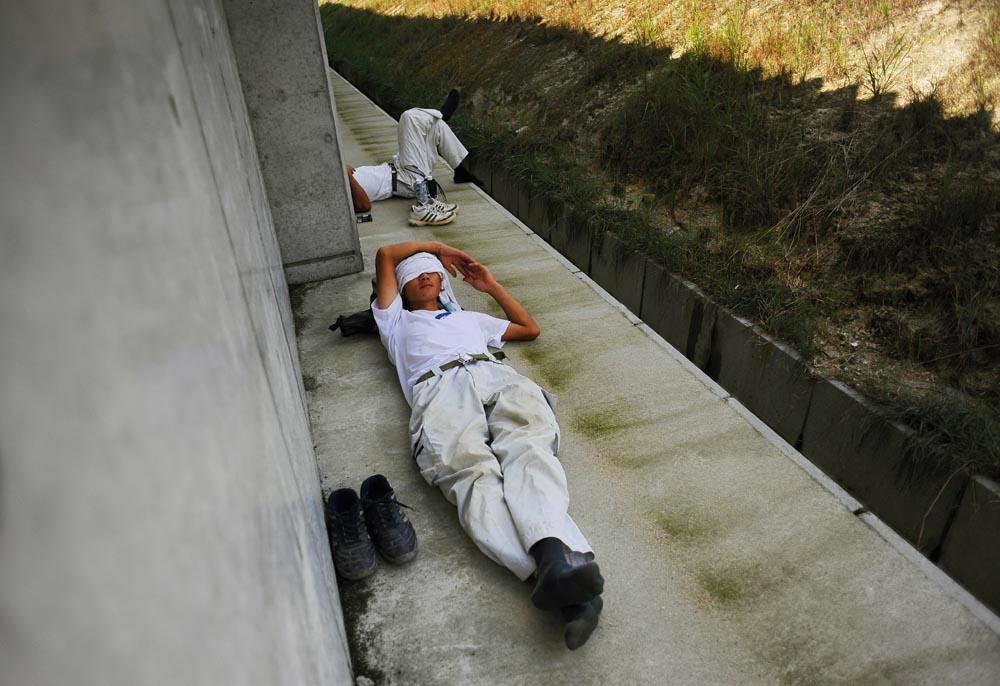

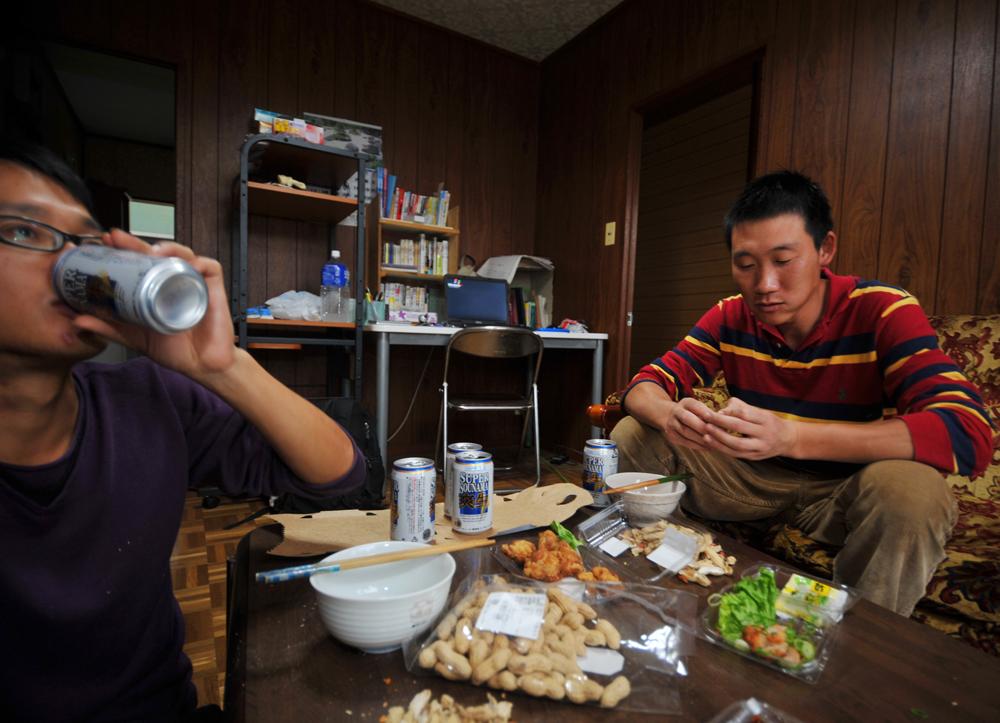
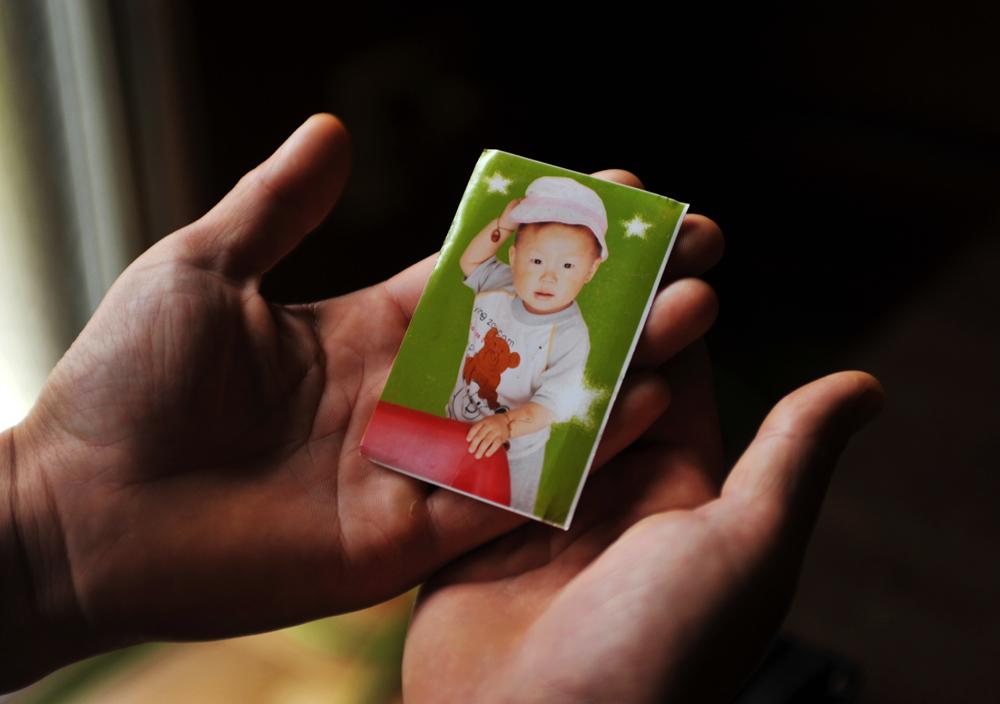
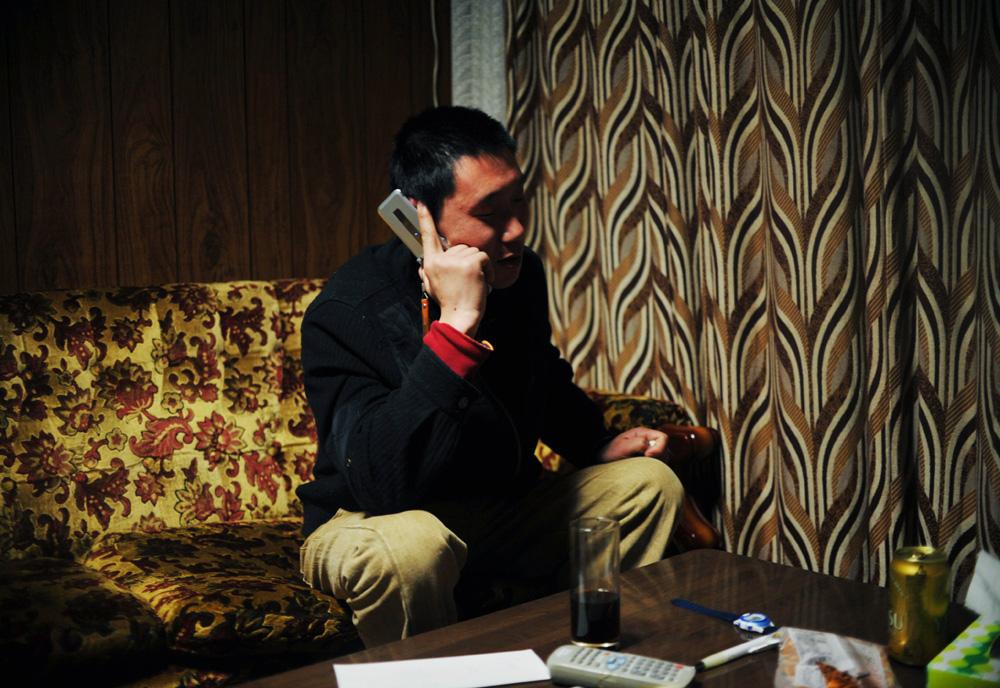
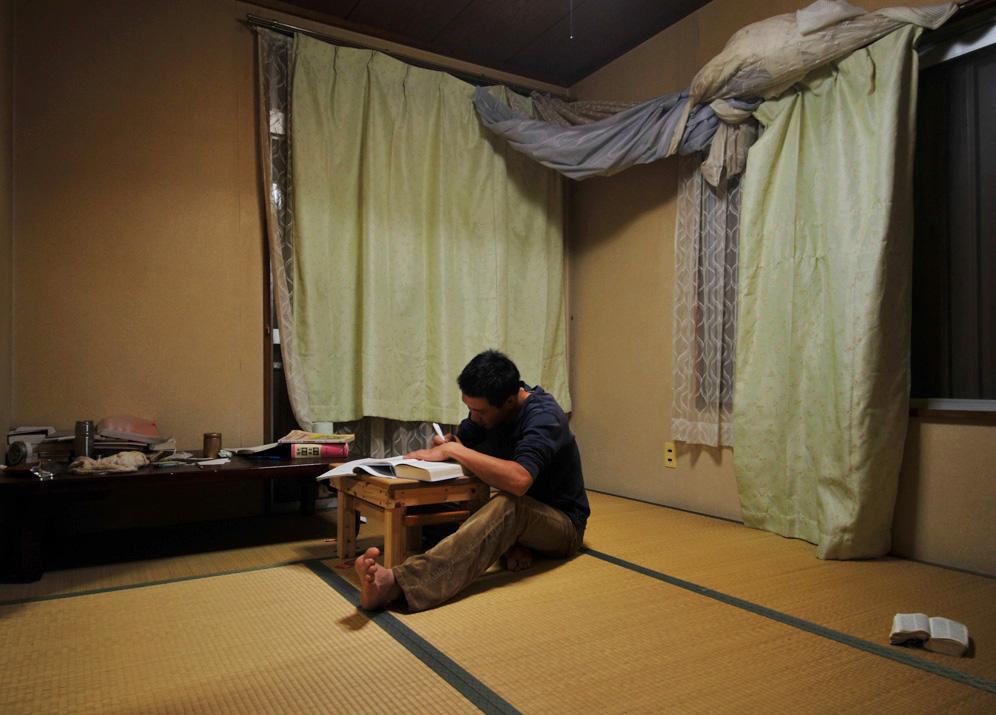
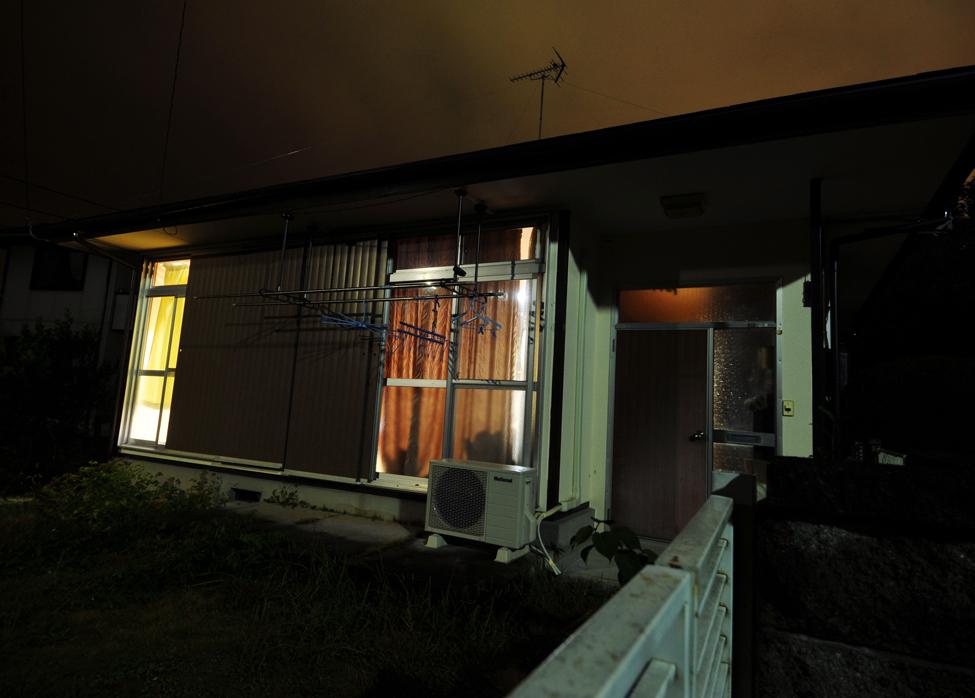
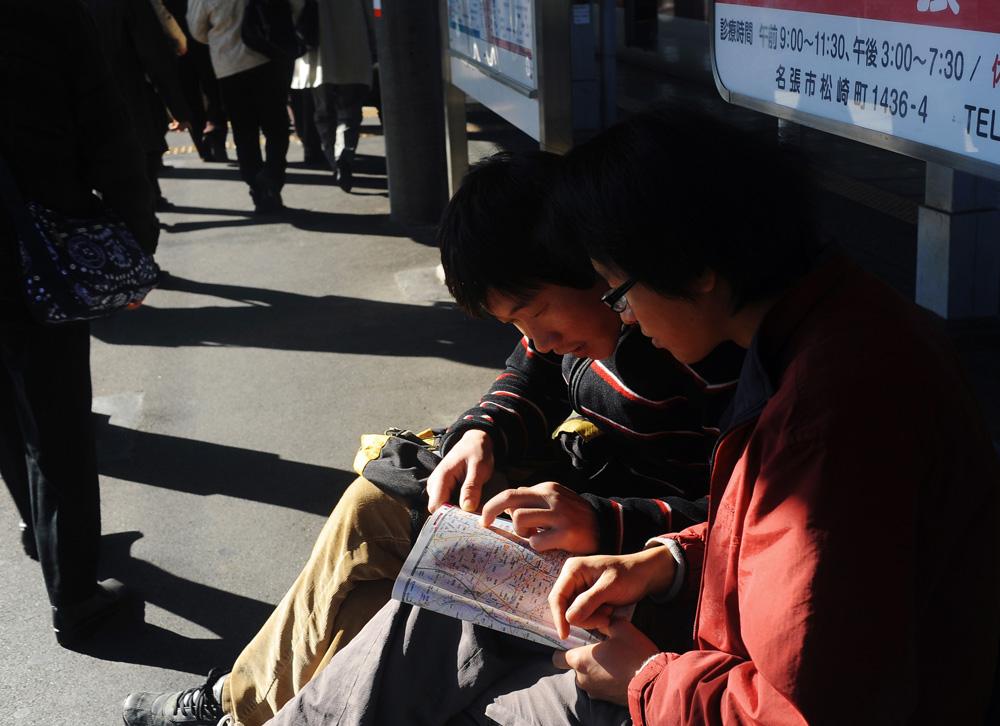
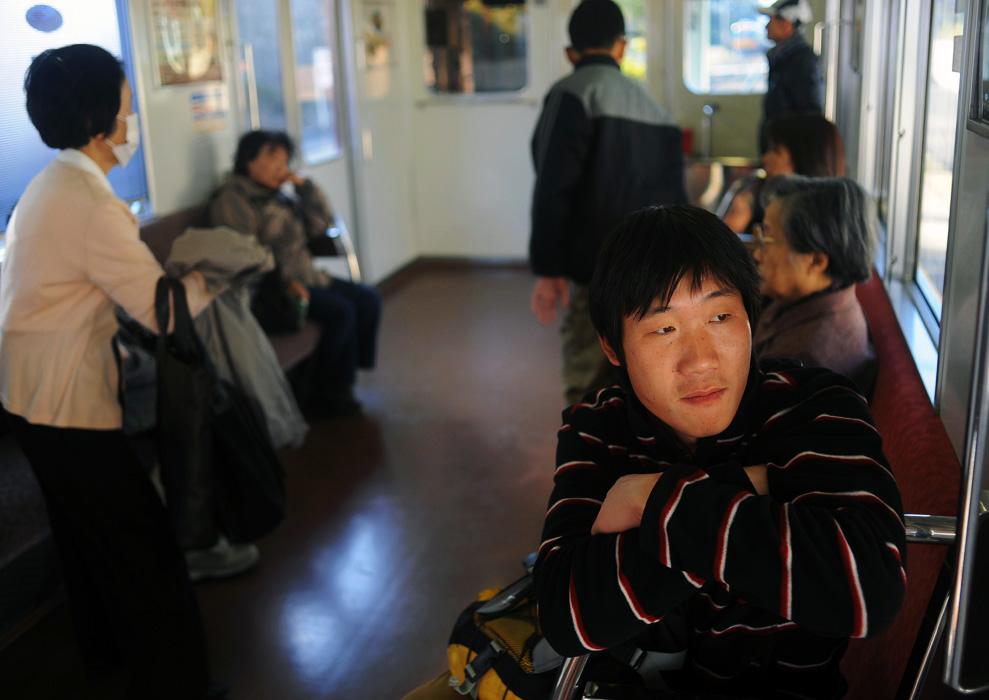
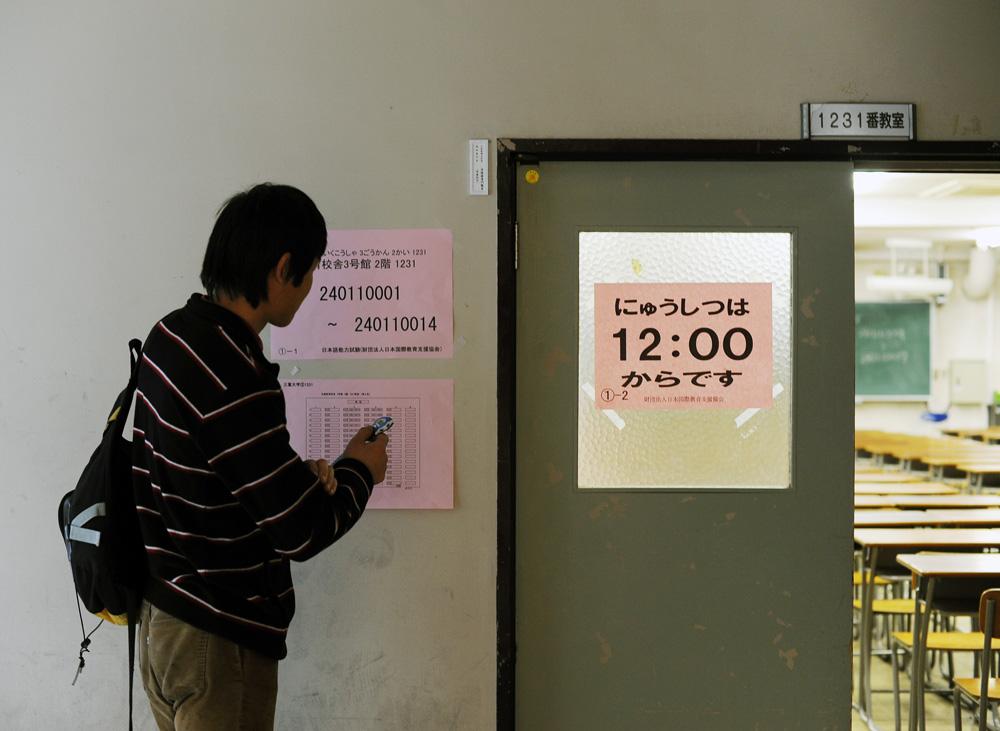
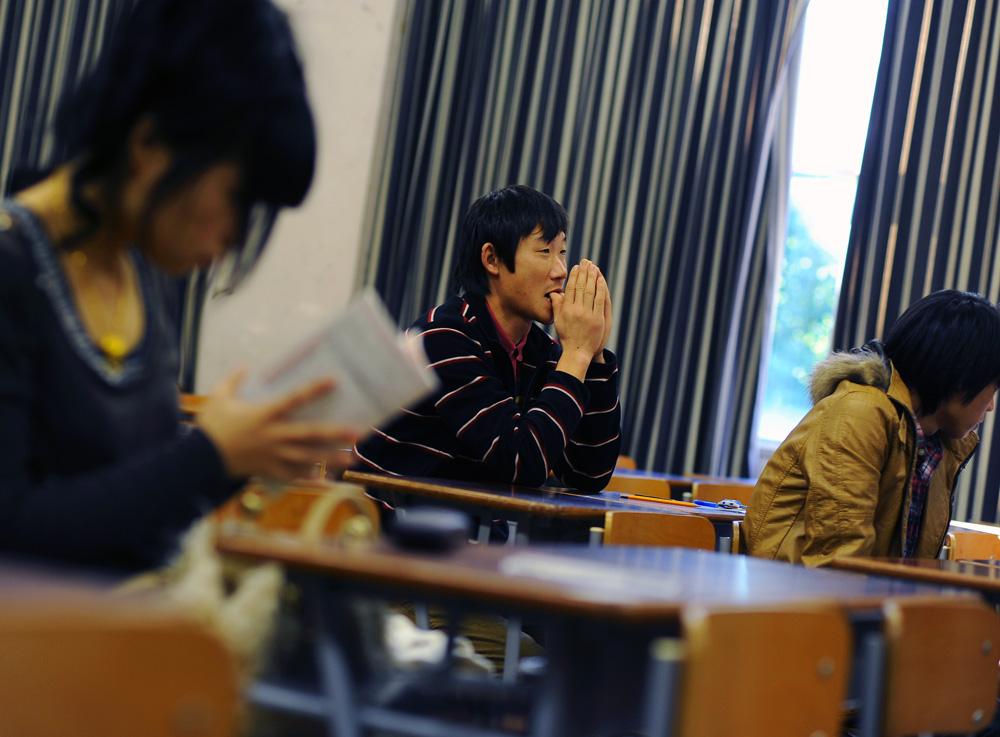
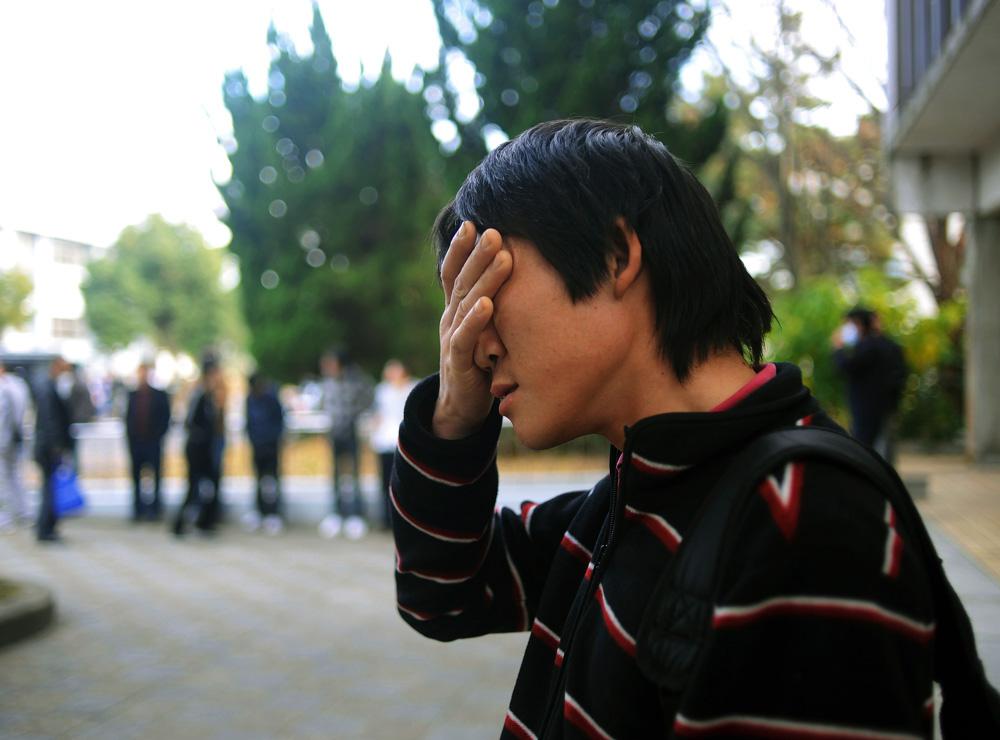
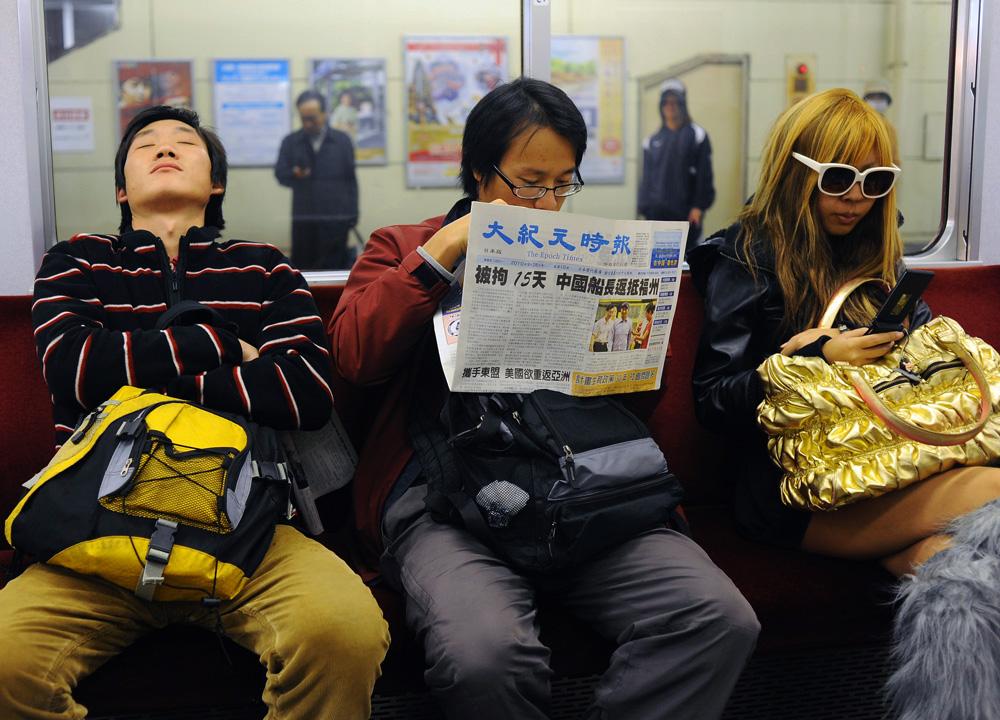
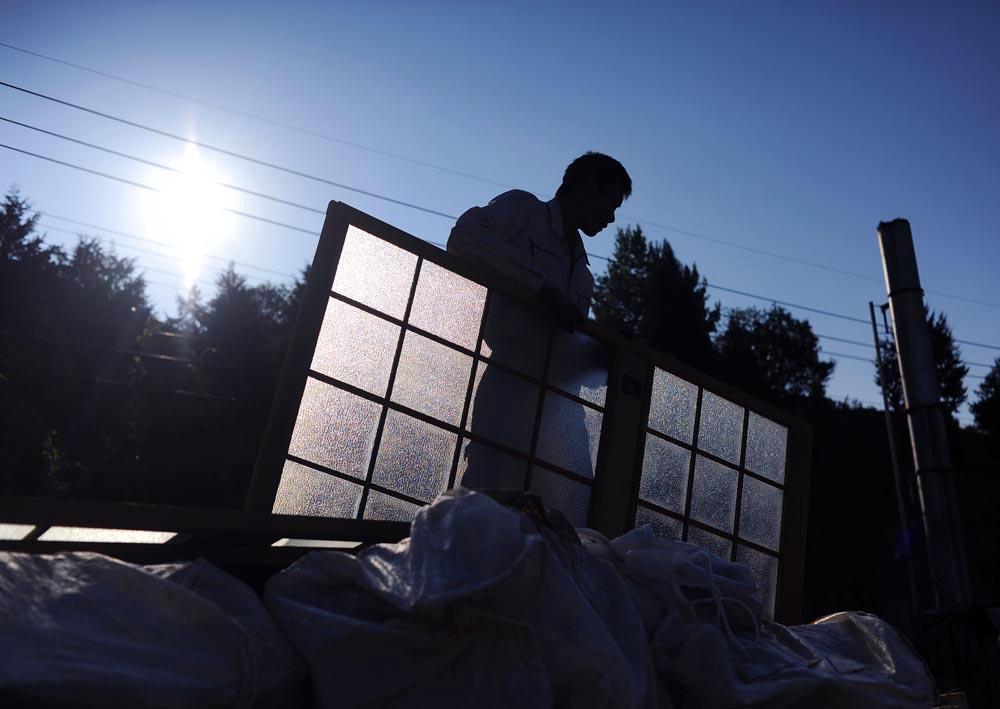
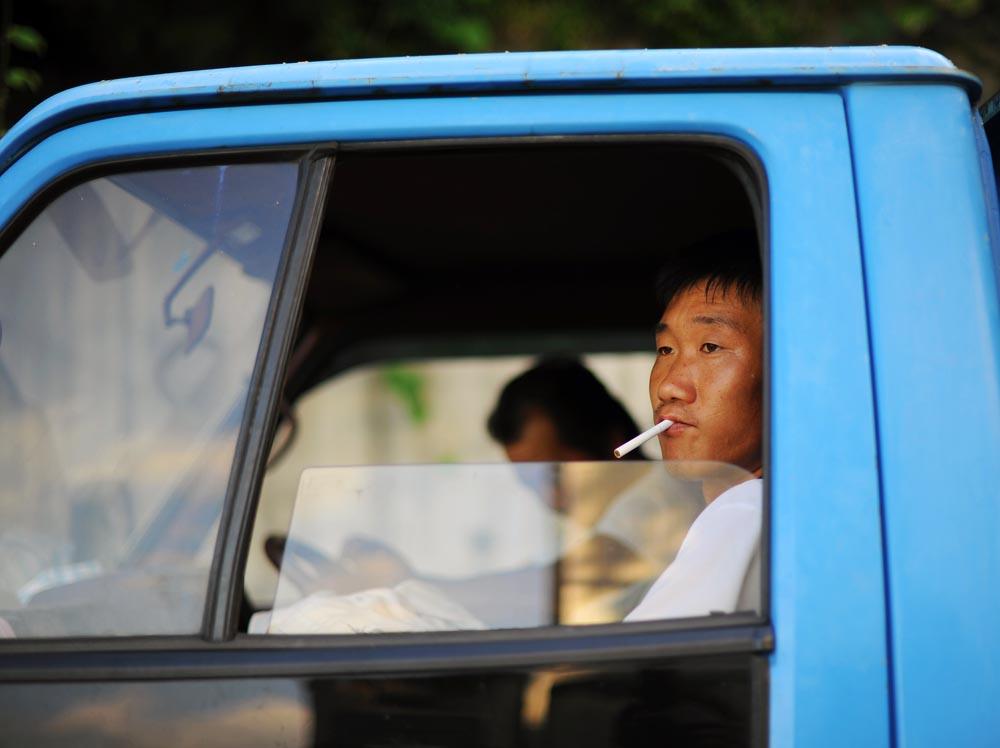

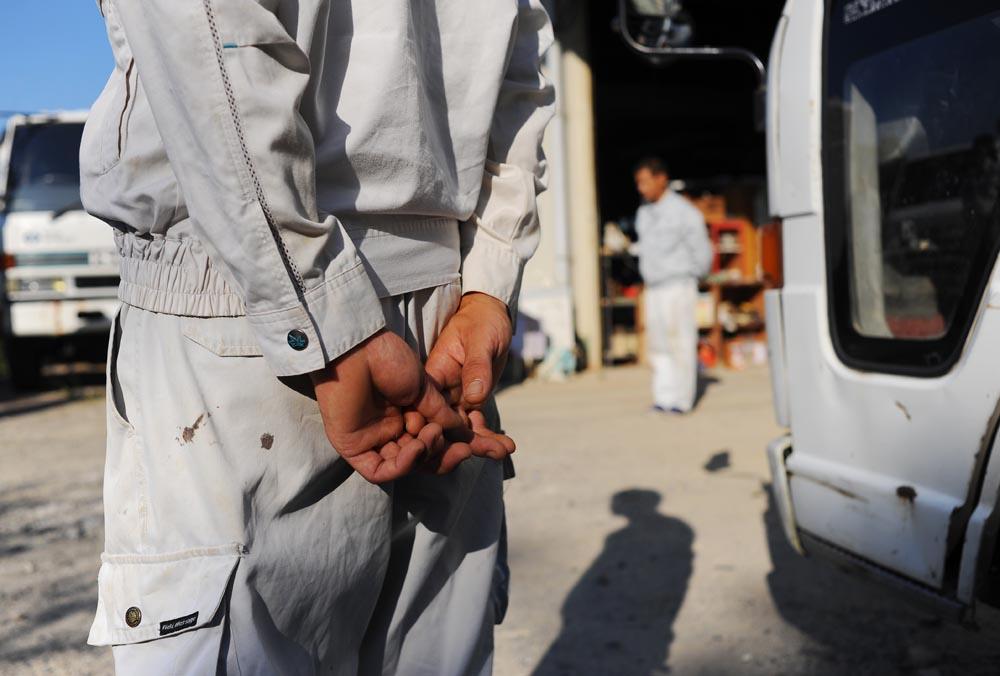
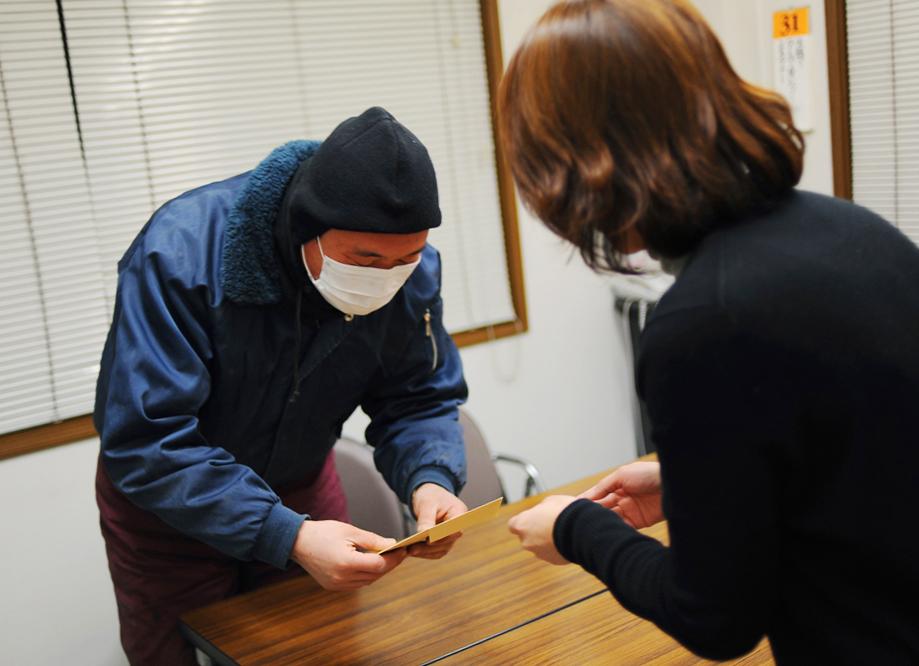

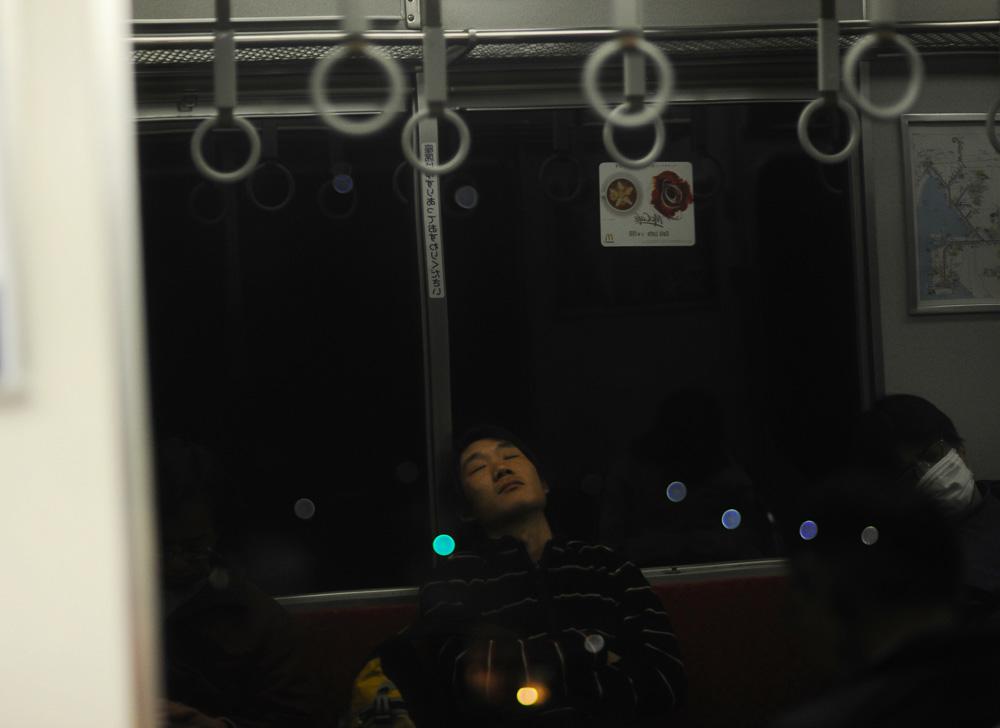

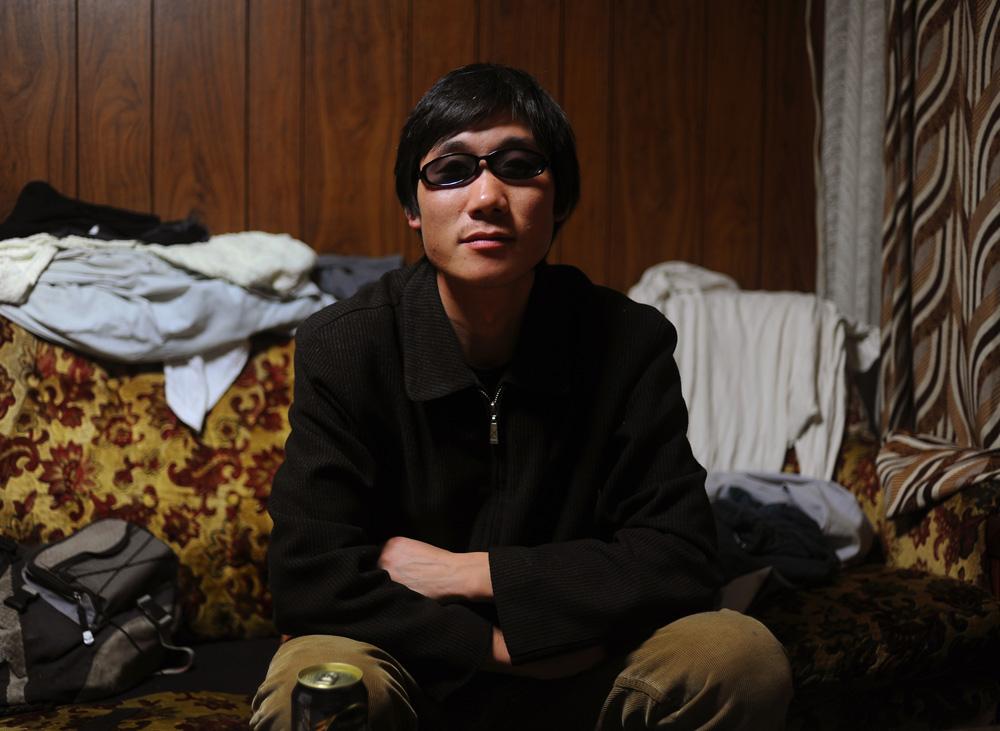

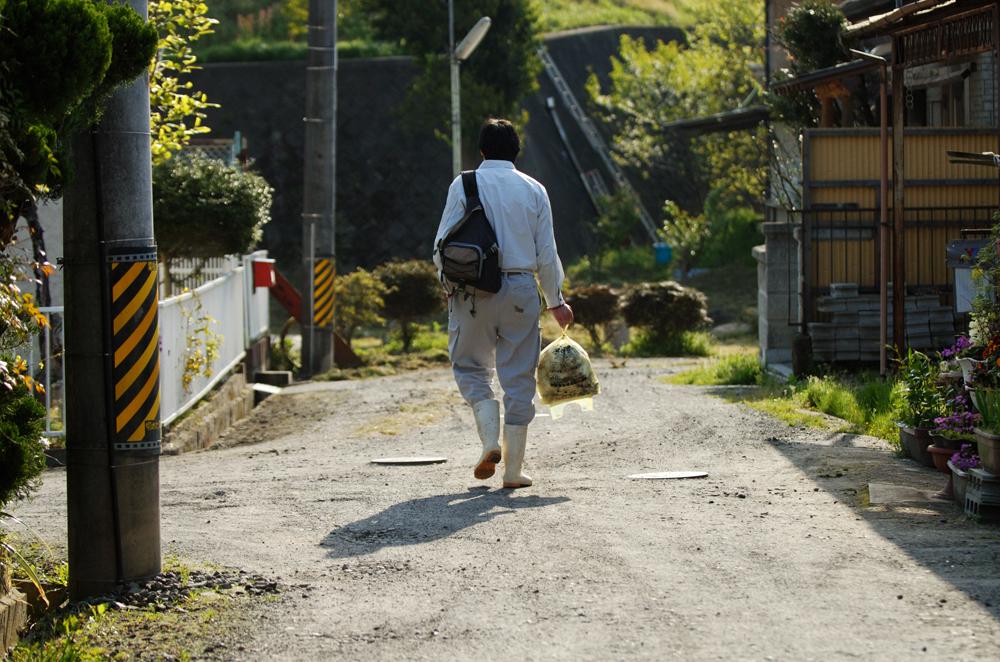
On A Slow Boat to China
My Journey with Li Chuan-hua
Li Chuan-hua (29) is a Chinese guest worker from Shandong Province in Mie Prefecture, Western Japan. The father of 5-year old boy, he came to Japan in April, 2008 as a contract worker for a local construction company. He arrived in Japan with just 5-month Japanese crash course and left his family behind. He had no plan to visit China and his family during his 3-year contract with the company to save money.
According to a recent labor survey, there are 280,000 Chinese workers (out of 650,000 foreign workers) in Japan. Chinese workers hold 44% of all foreign workers*(1). Yet, under the facade of the homogeneous and somewhat xenophobic society, it is very easy for many Japanese to disregard their existence as the invisible "the other". In fact, Japan's agricultural, manufacturing, construction, or service sectors which face rapidly aging workers and labor shortage depend on their workforce tremendously, and there will be more need for their labor force.
I had been documenting his life in Japan and went back to China with him in this May 2011. *(2) Through this project, I would like to show that he is not a statistic and is just like "one of us" who searches for a taste of the good life although he can be seen as a disposable force in Japan and is only paid half of the other Japanese workers' earnings. I also would like to explore his anxieties of dislocation and of being swept up outside his control in this globalized economy.
2009~2011
*(1) To be specific, according to the Governmental Agency, JITCO (Japan International Training Cooperation Organization)'s term, foreign guest workers are supervised under "Industrial Training and Internship Programs" and are called "Trainees." Chinese workers hold 82.1% of all trainees. According to the Immigration Bureau of Japan, In 2008 alone, about 69,000 new trainees (out of total 102,000) were from China and had joined the agricultural, manufacturing, or construction workforce in Japan.
*(2) Unfortunately, his father had been ill and passed away just the day before he arrived in China. Li’s family members kept his father’s illness secret from him till he came back home.
































On A Slow Boat to China
My Journey with Li Chuan-hua
Li Chuan-hua (29) is a Chinese guest worker from Shandong Province in Mie Prefecture, Western Japan. The father of 5-year old boy, he came to Japan in April, 2008 as a contract worker for a local construction company. He arrived in Japan with just 5-month Japanese crash course and left his family behind. He had no plan to visit China and his family during his 3-year contract with the company to save money.
According to a recent labor survey, there are 280,000 Chinese workers (out of 650,000 foreign workers) in Japan. Chinese workers hold 44% of all foreign workers*(1). Yet, under the facade of the homogeneous and somewhat xenophobic society, it is very easy for many Japanese to disregard their existence as the invisible "the other". In fact, Japan's agricultural, manufacturing, construction, or service sectors which face rapidly aging workers and labor shortage depend on their workforce tremendously, and there will be more need for their labor force.
I had been documenting his life in Japan and went back to China with him in this May 2011. *(2) Through this project, I would like to show that he is not a statistic and is just like "one of us" who searches for a taste of the good life although he can be seen as a disposable force in Japan and is only paid half of the other Japanese workers' earnings. I also would like to explore his anxieties of dislocation and of being swept up outside his control in this globalized economy.
2009~2011
*(1) To be specific, according to the Governmental Agency, JITCO (Japan International Training Cooperation Organization)'s term, foreign guest workers are supervised under "Industrial Training and Internship Programs" and are called "Trainees." Chinese workers hold 82.1% of all trainees. According to the Immigration Bureau of Japan, In 2008 alone, about 69,000 new trainees (out of total 102,000) were from China and had joined the agricultural, manufacturing, or construction workforce in Japan.
*(2) Unfortunately, his father had been ill and passed away just the day before he arrived in China. Li’s family members kept his father’s illness secret from him till he came back home.































